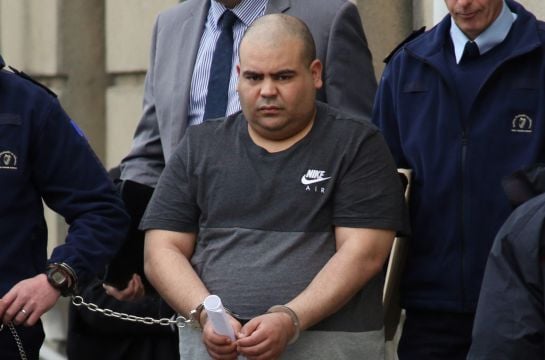A Dutch gang leader, who was arrested during a garda swoop on a suspected Kinahan cartel property in Dublin, has appealed a High Court decision allowing him to be tried for murder in the Netherlands.
Lawyers for the Minister for Justice said the appeal by Naoufal Fassih (40), if successful, would call into question the surrender of people to the Dutch authorities on European Arrest Warrants (EAWs) issued between 2003 and 2019.
Fassih, a Dutch citizen of Moroccan origin, was surrendered to the Dutch authorities by the High Court in 2017 to face charges of attempted murder, assault, possession of false documents and money laundering. He was subsequently convicted in the Netherlands of all charges and jailed for 18 years.
In 2019 a decision by the Court of Justice of the European Union (CJEU), in an unrelated case, found that the Dutch public prosecutor that issued the EAW for Fassih is not a recognised "judicial authority" and therefore cannot issue EAWs.
Further charges
While that did not mean the warrant executed in 2017 could be overturned, the decision came to the fore when, in 2020, the Dutch authorities asked for permission from the Irish High Court to try Fassih on further charges of murder and incitement to murder.
Under the EAW system member states can only try a person who has been surrendered for the charges laid out in the warrant. If they wish to try that person for further offences they must ask permission from the surrendering country. On July 27 last year the High Court agreed to allow The Dutch authorities to prosecute Fassih.
Remy Farrell SC for Mr Fassih, today (TUE) told the three-judge Court of Appeal that they should overturn the High Court's decision. He said the European Arrest Warrant Act only allows a further prosecution where the person has been surrendered "on foot of a European Arrest Warrant issued by a judicial authority."

He said it is clear that in this case the EAW was not issued by a judicial authority and therefore the High Court could not grant permission for a further prosecution.
Far-reaching consequences
Ronan Kennedy SC for the Minister for Justice said that if Mr Farrell is correct there must be a question over any surrender to the Netherlands from when the Act was passed in 2003 and the decision of the CJEU in 2019. He added: "That has a very far-reaching consequence and if Mr Farrell is right it is surprising there is no authority from any other jurisdiction on this question."
He suggested the reason it had not come up elsewhere is that EU law respects that decisions made by courts within member states are final. He said it is a "plain fact" that Fassih was surrendered on foot of a EAW and therefore the High Court was correct to allow him to be tried on further charges.
President of the Court of Appeal Mr Justice George Birmingham, sitting with Mr Justice Edwards and Ms Justice Mary Rose Gearty, said the court had "quite an amount to consider" and reserved judgement.







